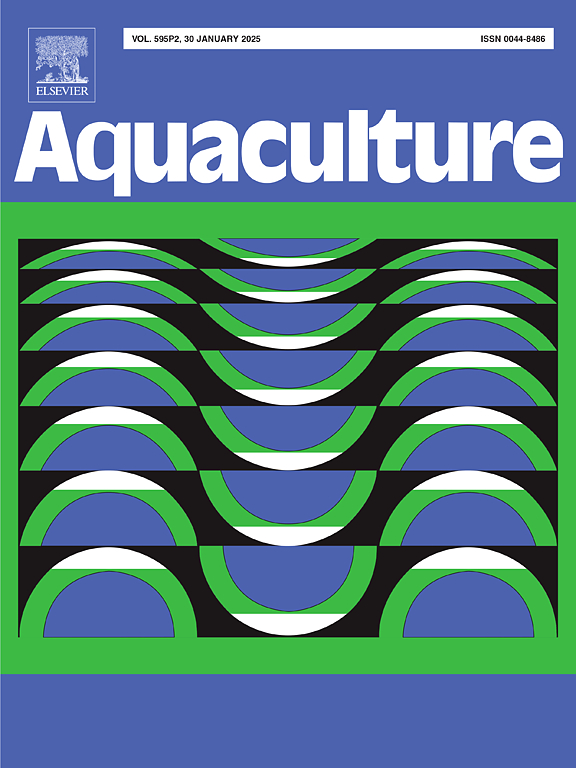Exploring the potential regulation mechanisms of host-microbiome comprehensive interactions on growth traits in Cyprinus carpio
IF 3.9
1区 农林科学
Q1 FISHERIES
引用次数: 0
Abstract
The interaction between gut microbiota and host genetic factors in regulating host growth is receiving increasing attention. However, the mechanism underlying host variations and gut microbiota in regulating growth is still unclear in aquatic species. In this study, muscle and gut microbiota samples were collected from common carp. Host genetic markers and gut microbiota 16S rRNA sequencing data were analyzed to dissect the interactions between host and gut microbiota on growth trait, revealing differences in the overall gut microbiota between the high-growth and low-growth groups. Ten bacterial taxa showed significant differences between the two groups. A genome-wide association study indicated three loci associated with the growth trait, while genes harboring the three loci were found to be associated with Iamia and Thermoactinomyces. The three loci (Chr18:6901682; Chr23:10968715; Chr32:16293406) were located within the genes PARD3B, RCC2, and ITGA10. Mutations at the RCC2 locus may disrupt the cell regulatory cycle, leading to an increase in immune-related bacterial taxa, triggering an immune response in fish, and significantly impacting the growth rate of the common carp. Our study offers valuable insights into how host genome variations can influence growth traits by impacting gut microbiota, serving as a reference for understanding the intricate relationship between fish and gut microbiota. This research holds paramount significance for advancing engineered microbiome technology in aquaculture.
求助全文
约1分钟内获得全文
求助全文
来源期刊

Aquaculture
农林科学-海洋与淡水生物学
CiteScore
8.60
自引率
17.80%
发文量
1246
审稿时长
56 days
期刊介绍:
Aquaculture is an international journal for the exploration, improvement and management of all freshwater and marine food resources. It publishes novel and innovative research of world-wide interest on farming of aquatic organisms, which includes finfish, mollusks, crustaceans and aquatic plants for human consumption. Research on ornamentals is not a focus of the Journal. Aquaculture only publishes papers with a clear relevance to improving aquaculture practices or a potential application.
 求助内容:
求助内容: 应助结果提醒方式:
应助结果提醒方式:


